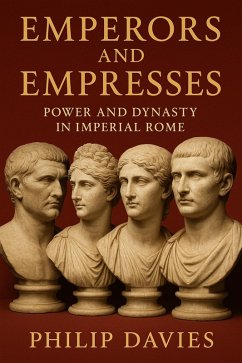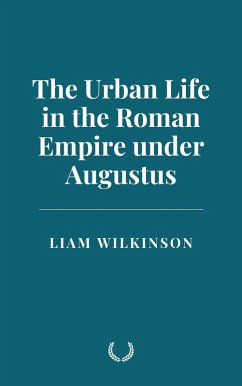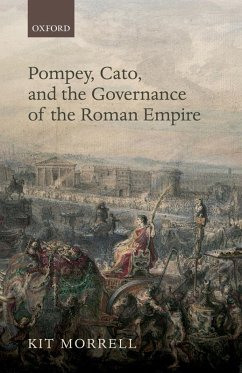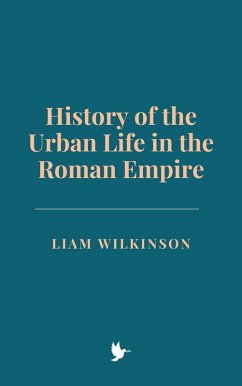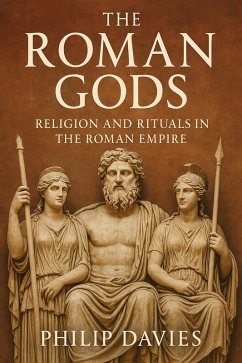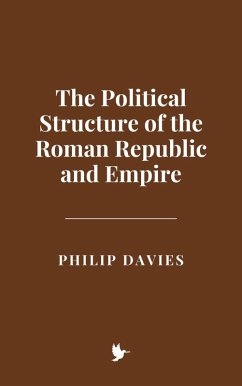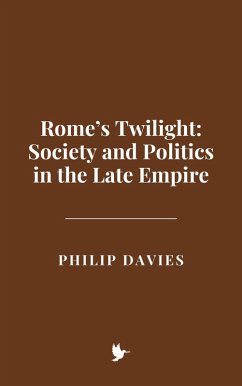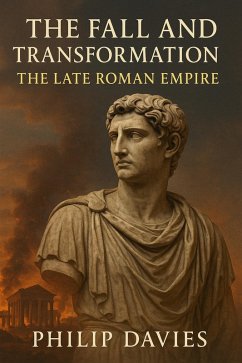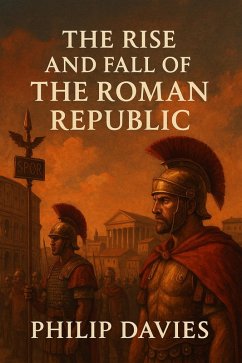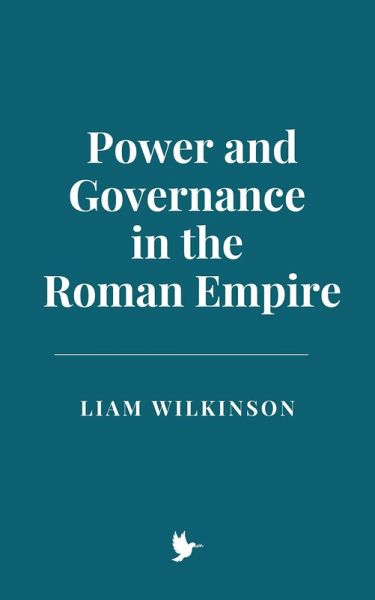
Power and Governance in the Roman Empire (eBook, ePUB)

PAYBACK Punkte
0 °P sammeln!
This book provides a comprehensive exploration of the government and politics of the ancient Roman Empire, from its early republican foundations to the collapse of Western imperial authority in 476 CE. Through twenty chapters, it examines the evolution of Roman governance, including its constitutional framework, magistracies, assemblies, and the role of the Senate, as well as the transitions from Republic to Principate and Dominate.Each chapter offers a detailed analysis of key historical periods, figures, and institutions, emphasizing the interplay between tradition and innovation, the balanc...
This book provides a comprehensive exploration of the government and politics of the ancient Roman Empire, from its early republican foundations to the collapse of Western imperial authority in 476 CE. Through twenty chapters, it examines the evolution of Roman governance, including its constitutional framework, magistracies, assemblies, and the role of the Senate, as well as the transitions from Republic to Principate and Dominate.
Each chapter offers a detailed analysis of key historical periods, figures, and institutions, emphasizing the interplay between tradition and innovation, the balance of power, and the challenges of administering an expansive and diverse empire. Topics include the foundational Twelve Tables of Roman law, the conflicts between populares and optimates, the transformative reforms of Julius Caesar and Augustus, and the crises and adaptations of the third century. The narrative also explores the rise of Christianity under Constantine, the geopolitical and cultural shifts of the late Empire, and the eventual fragmentation of the western provinces.
Drawing on a wide range of primary sources, such as the works of Livy, Tacitus, Suetonius, and Ammianus Marcellinus, as well as modern scholarship, the book highlights the complexities of Roman political thought and the enduring legacy of its institutions. It offers critical insights into the dynamics of leadership, the intersection of military and political power, and the resilience and vulnerabilities of Rome's systems of governance.
This work underscores Rome's influence on Western political and legal traditions, examining its successes and failures as a model for statecraft. It provides readers with a nuanced understanding of how one of history's greatest empires adapted to internal challenges and external pressures over centuries, ultimately transforming into the Byzantine world and shaping the foundations of medieval Europe.
Each chapter offers a detailed analysis of key historical periods, figures, and institutions, emphasizing the interplay between tradition and innovation, the balance of power, and the challenges of administering an expansive and diverse empire. Topics include the foundational Twelve Tables of Roman law, the conflicts between populares and optimates, the transformative reforms of Julius Caesar and Augustus, and the crises and adaptations of the third century. The narrative also explores the rise of Christianity under Constantine, the geopolitical and cultural shifts of the late Empire, and the eventual fragmentation of the western provinces.
Drawing on a wide range of primary sources, such as the works of Livy, Tacitus, Suetonius, and Ammianus Marcellinus, as well as modern scholarship, the book highlights the complexities of Roman political thought and the enduring legacy of its institutions. It offers critical insights into the dynamics of leadership, the intersection of military and political power, and the resilience and vulnerabilities of Rome's systems of governance.
This work underscores Rome's influence on Western political and legal traditions, examining its successes and failures as a model for statecraft. It provides readers with a nuanced understanding of how one of history's greatest empires adapted to internal challenges and external pressures over centuries, ultimately transforming into the Byzantine world and shaping the foundations of medieval Europe.
Dieser Download kann aus rechtlichen Gründen nur mit Rechnungsadresse in A, B, CY, CZ, D, DK, EW, E, FIN, F, GR, H, IRL, I, LT, L, LR, M, NL, PL, P, R, S, SLO, SK ausgeliefert werden.




